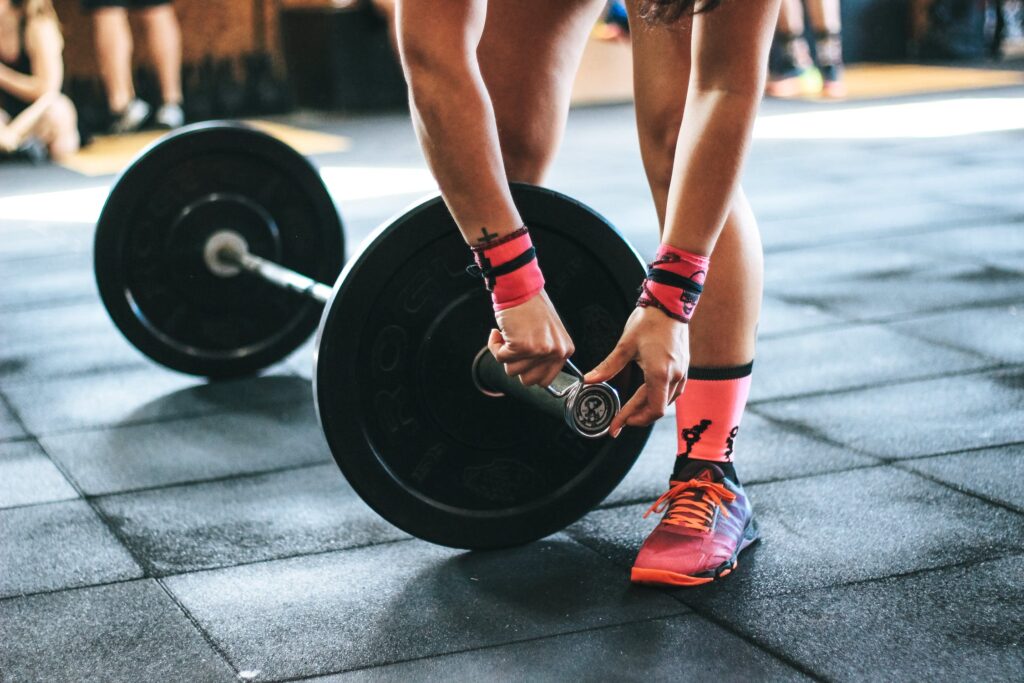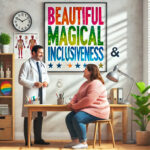Hanging up the bikini: why I quit fitness competitions

Hanging up the bikini: why I quit fitness competitions
In October 2014, at age 31, I achieved the award that marked the pinnacle of my fitness competition career: the coveted Bikini Athlete Pro Card. Standing onstage in a Hertfordshire theatre, smiling for the winner’s photographs, I appeared the epitome of health and fitness. But, in reality, I was suffering from serious physical and mental damage.
I have had a disordered relationship with food since I developed anorexia at the age of 11. Over the years, I have also suffered from body dysmorphia and bulimia. When I was in my late 20s, entering the world of physique competitions triggered a major relapse into these destructive patterns of eating.
Fitness competitions are a misnomer. The irony of these events lies in the very title itself: fitness is not necessarily synonymous with health. I was a fitness model, yet I was far from fit. I ignored my body’s appeals for food and rest, and instead rigidly adhered to punishing diet and training regimes in the hope that they would make me muscular and lean.
These types of strict routines mean that most competitors become disconnected from their bodies and what they truly need. Unsurprisingly, therefore, in the fitness world disordered eating is extremely common. Female athletes have the same risk factors as women in the general population, supplemented by the additional risk of reducing their body fat to dangerously low levels.
Body fat is decreased during the final stage of competition preparation, which is masochistically known as ‘cutting’. This typically begins eight to twelve weeks prior to a show, depending on the amount of fat that must be lost in order to create a winning physique.
This process increases the female competitor’s susceptibility to three inter-related disorders, known as the Female Athlete Triad. The components of the triad are osteoporosis, amenorrhea and disordered eating.
Osteoporosis occurs because limiting calorie intake leads to a decreased production of the hormone oestrogen. Since oestrogen plays a crucial role in calcium resorption and bone growth, reduced levels can lead to brittle bones. Even though I was following an extremely restrictive diet, I naively thought that any damage would be offset by my strength training which typically increases bone density. After competing, however, I had a bone density (DEXA) scan, which revealed that my bone density was borderline abnormal.
Not only does a low level of oestrogen lead to brittle bones, it also causes menstrual dysfunction where the cycle can be delayed, or can stop altogether (known as amenorrhea). Owing to my restrictive eating habit, I have lost my period on numerous occasions over the past two decades. When I experienced amenorrhea during competition preparation, however, this was the last occasion before I learned that I was infertile. Three very costly and emotionally traumatic in vitro fertilization (IVF) cycles later, and I am still waiting for my miracle baby.
While osteoporosis and amenorrhea are widely experienced by female athletes, the most common aspect of the triad is disordered eating. This includes extreme calorie restriction, binge eating, and purging via excessive exercise or self-induced vomiting. These abnormal patterns of behaviour are caused by the strict nutritional regime required during competition prep.
My own insubstantial food plan exacerbated my pre-existing patterns of disorderly eating. I was so hungry that I couldn’t keep any ‘forbidden’ food items in the house since I had moments of ‘weakness’, where I would ‘give in’ and binge. A teaspoon of peanut butter could easily become a whole jar.
I unsuccessfully attempted to alleviate my troublesome appetite by drinking litres of cherry Pepsi Max and chewing sugar free gum. The Pepsi, however, gave me headaches and heart palpitations; and I chewed so much gum that I eventually wore away my teeth and had to have most of them filled.
Hunger increases during the final weeks of preparation, when carbohydrates are drastically decreased in order to boost fat loss. Severely reducing carbohydrates releases ketones which the body can then use as fuel. This process produces various side effects, however, including nausea, headaches and fatigue.
In order to avoid these undesirable symptoms, competitors typically cycle carbohydrates. This involves enduring several consecutive low carbohydrate days, followed by a high carbohydrate ‘refeed’ day to aid metabolism and ensure continual fat loss. I didn’t know this at the time, but this established a pattern of eating which would later turn into a vicious cycle of restriction and binging.
In the end, all my hard work paid off. I won. And I was awarded my Pro Card. But was it worth it? On show day, the audience admire and applaud your physique. But they don’t see behind the curtain. They don’t see what it takes to be that woman holding the trophy. And they don’t see what happens afterwards.
Stepping off stage was the beginning of a relapse into my most serious and dangerous eating disorder phase to date.
Terrified of losing my stage physique, I continued to restrict my calorie intake over the next couple of years. I lost body fat, and I also lost the muscle that I had worked so hard to gain. My body literally ate itself. My glutes, the prized aspect of every bikini competitor, became saggy and deflated. My coccyx was so bony that I had to sit on a cushion. I was constantly cold from the inside out and handfuls of my hair fell out in the shower. I couldn’t go to the gym; I couldn’t even walk 10 minutes to the shop without feeling faint.
Eventually, my internal organs began to shut down and my hormones stopped functioning. I developed bradycardia because the muscles in my heart had shrunk.
I lost over two stone (12.7kg) before I was admitted into an eating disorders hospital, where I spent 18 months as an outpatient. I was emaciated and mentally broken, a shadow of the woman who triumphantly raised the winning trophy.
In my experience, having your dream body does not make your life better. For me, it did exactly the opposite.
Whether you are preparing for a fitness competition, or just trying to manipulate your body through diet and exercise, I hope this has brought attention to the physical and emotional damage that can be caused by valuing aesthetics over mental health.
I am now working towards food freedom and body acceptance. I still have my competition bikini as a memento, but its time in the spotlight is over and it is resolutely HUNG UP.
If you are struggling with your eating or body image, particularly during this food-centric time of year, please remember to be kind to yourself. It’s okay to eat Christmas cake and chocolates from the tree; and to share a family turkey dinner with ALL the trimmings. Denying yourself the opportunity to enjoy these experiences will only leave you feeling isolated and deprived. Trust that your body will know what to do with the mince pies, because it really does! You have permission to eat, to nourish yourself, and to create magical Christmas memories this festive season.






Dear Victoria, thank you thank you thank you! I am a 53 year old woman with a fitness addiction which I am trying to stop. So far I have not succeeded and I go to the gym every day. I am slightly underweight, but I feel terrible! I am tired, easily stressed, have trouble sleeping and the list goes on. Today my government (The Netherlands) announced a complete lockdown of all facilities, except food shops. So my gym is closed and this is awful but at the same time an opportunity for me to go ‘cold turkey’. Your article has given me the a push in the right direction!
Dear Nicolet, thank you for your message. I’m glad that my article resonated with you, and that you found it useful. I pushed my body to the absolute physical and mental limit with training and diet, and paid a huge price. I still struggle with compulsive exercise and restrictive eating, but write about and share my experiences not only to inspire others, but also to remind myself of where they can lead. I now have at least one day a week away from the gym, which my body greatly appreciates! The disordered aspect of my mind is just beginning to appreciate that physical and mental repair can only happen at rest; and that having a day reading or watching films actually means that I come back stronger, more energized, and motivated to exercise, rather than feeling compelled. The gyms were also shut here in England, which initially made me panic, but I took the opportunity to go on walks in nature, and to try other forms of movement such as yoga. The lockdown has taught me that I really don’t need to exercise every day, and that nothing bad happens when I sit on the settee with a novel: in fact, it has resulted in only good things! Good luck, and thank you again for getting in touch, Victoria.
I have a very almost similar experience as Victoria and I am looking for help
Dear Adriana,
I encourage you to reach out for help – perhaps your GP is the first best step?
Please know you can be helped and be free to live your life to the full.
With love, June